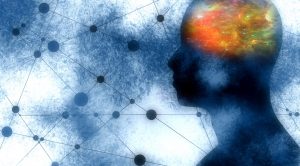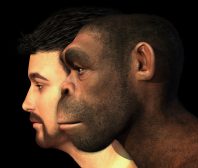Table of Contents
Egestion is the act or process of voiding or discharging undigested food as faeces. To egest means to discharge undigested material or food.
Etymology
The term egestion came from the Latin ēgerere, ēgest-, meaning “to carry out”. Synonyms: defecation.
Egestion vs. excretion
Excretion is a process, act or function of discharging or ejecting waste product of metabolism, especially from the system of an organism.
Both egestion and excretion refer to the act or process of getting rid of wastes from the cell or body. However, egestion should not be confused with excretion as the latter is specifically defined as getting rid of waste formed from the chemical reaction of the body, such as in urine, sweat, etc.
Thus, excretion in humans and other multicellular animals is carried out by the kidneys and skin. Conversely, egestion is the removal of undigested wastes by discharging or expulsing them from the digestive tract via the anus. As for the plants, they do not egest as they lack a digestive system for egestion.
The waste products of plants are released from the plant largely via stomata and hydathodes. Excess oxygen, for instance, is brought by the phloem and xylem tissues to be excreted via the stomata. Transpiration (via stomata) and guttation (via hydathodes) are examples of the ways by which plants excrete wastes.1
Egestion vs. ingestion
Ingestion is the process of taking a material (e.g. foodstuff) into the mouth or body in contrast to egestion that expels undigested food materials out of the body from the anus.
Egestion in animals
In humans and other higher forms of animals, the egestion process entails waves of muscular contractions of the colonic walls, moving the fecal matter towards the rectum. The fecal matter is temporarily stored in the rectum ampulla. As the fecal matter accumulates, the rectal walls expand. This causes the stretch receptors in the rectal walls stimulated, the rectal muscles to contract by reflex, the internal anal sphincter to relax, and the external anal sphincter skeletal muscle to contract. As a result, there is an urge to expel the feces. When not acted upon, reverse peristalsis occurs where the material returns to colon for further water absorption and transient storage until the next waves of muscular contractions of the transverse and descending colon. During defecation, Valsalva maneuver is performed. That is the air is expelled against a closed airway. This causes the lungs to cease ventilation as it pushes the chest diaphragm down. This results in pressure on the digestive tract.
Egestion disorders
When the fecal material is delayed over a prolonged period of time, it may harden from water absorption. The evacuation of feces may turn out to be difficult or straining. The condition is referred to as constipation. Conversely, when the fecal material still contains excess liquid when evacuated too fast and frequent the condition is referred to as diarrhea.
Importance of egestion
Egestion is a vital process in humans and animals as it is the means to dispose of the undigested food from the system. If bowel movement is willfully delayed for long periods, this could lead to a megacolon and may eventuate to bowel rupture.(2)
See also
References
- Chapter 10 EXCRETION. Retrieved from http://www.kau.edu.sa/GetFile.aspx?id=240527&fn=10- Chapter 10 – Excretion.pdf
- Pappas, S. (2018, March). What Happens If You Don’t Poop for 40 Days? Retrieved November 22, 2019, from livescience.com website: https://www.livescience.com/61894-what-happens-if-you-dont-poop.html
Further reading
- Somnath Palit, Lunniss, P. J., & Scott, M. S. (2012, February 26). The Physiology of Human Defecation. Retrieved from ResearchGate website: https://www.researchgate.net/publication/221863414-The-Physiology-of-Human-Defecation
© Biology Online. Content provided and moderated by Biology Online Editors







